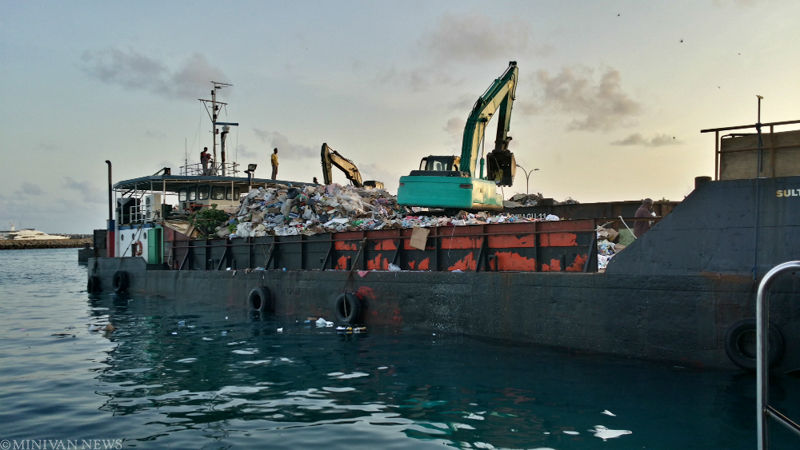Malé households do not separate waste, survey shows
A majority of household waste in Malé is collected by expatriate workers, each of whom dispose waste for an average of ten households every day, according to a survey by the state-owned Waste Management Corporation.

12 Apr 2016, 09:00
A majority of household waste in Malé is collected by expatriate workers, each of whom dispose waste for an average of ten households every day, according to a survey by the state-owned Waste Management Corporation.
The survey, which has not been published yet, shows households in Malé do not separate waste, Environment Minister Thoriq Ibrahim said on Monday.
Thoriq said the market survey comes ahead of WAMCO’s plans to take over waste collection and management in Malé. The company, which was handed a contract to manage the capital’s waste last December, hopes to begin operations by the end of the year.
“There has been a lot of preparation for this. I have received information that contracts have been signed to buy some of the equipment needed for the program,” Thoriq said.
Become a member
Get full access to our archive and personalise your experience.
Already a member?
Discussion
No comments yet. Be the first to share your thoughts!
No comments yet. Be the first to join the conversation!
Join the Conversation
Sign in to share your thoughts under an alias and take part in the discussion. Independent journalism thrives on open, respectful debate — your voice matters.




